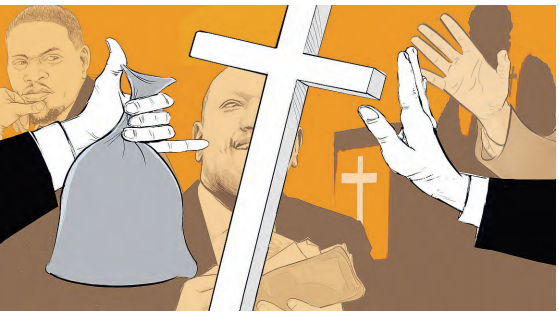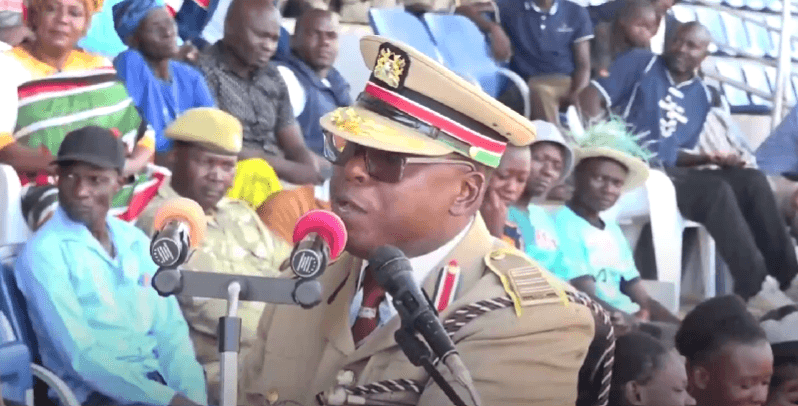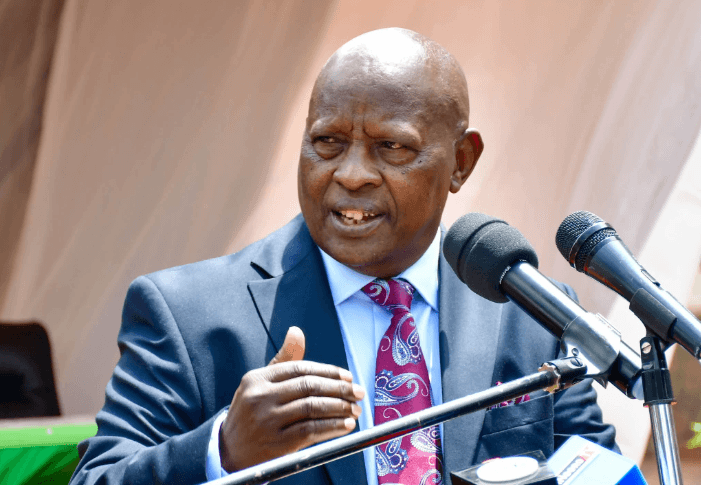
Last Sunday, President William Ruto, accompanied by Nairobi Governor Johnston Sakaja, attended a Mass at Soweto Catholic Church in Nairobi, where they collectively donated Sh2.8 million.
Ruto pledged an additional Sh3 million to cater for the construction of the Father’s house and purchase of a parish bus.
However, the Kenya Conference of Catholic Bishops came out publicly to reject the financial offers, citing the church’s directive and the law.
Now of course, this caught many by surprise.
Politicians have for the longest time given to the Church, and its borderline impossible to recall an instance when goodies were ‘returned to sender,’ as is the case with this dumbfounding scenario.
Not so long ago, when former president Uhuru Kenyatta was in office, he did the exact thing as Ruto—attended Mass, donated money and pledged more money, millions.
Only in Ruto’s case, it was deemed ‘unethical and immoral’ by the church to accept the money.
The same KCCB was still quite active and awake to the happenings in both scenarios.
So what are we really looking at here?
What is really going on behind the veneers?
Is there some sort of threshold one should meet so that their contributions can be considered acceptable?
And, who really has the authority to dictate one’s personal relationship with their deity figure?
The reactions from ‘ordinary’ Kenyans all pointed to one particular pestering issue—poverty.
They called out the church, saying the money could have helped them in one way or another.
Let’s put possibly existent conflicts aside for a moment here, and address this societal ogre that is poverty, and the fact that the church is not blind to its existence.
The Catholic Church is a global institution with a reputation and status that basically equates it with whole governments.
It has an administrative city with sovereign status for crying out loud.
It once ran an empire that spanned across Europe. Kings sought its endorsement in nearly every facet of politics.
Therefore, we can certainly rule out the plausibility of a scenario where the church fears that any contribution or grant given to it by a politician might come with strings attached.
In that regard, the church should have simply put any existing grudges aside, take the money and give it all to its faithful, and I mean all.
Sh5.8 million can help many impoverished souls during these harsh economic times.
A good number of us have been observers of the goings-on of national politics, and I’m confident that we can unanimously concur that this particular matter is nothing other than political.
As stated earlier, Uhuru and Ruto were accorded different treatment as regards their donations.
The Bible unequivocally calls on all of us, whatever status we may be of, to help in whatever way we can, to support the Lord’s work.
What’s even more puzzling is that unlike in Uhuru’s case, the church personally sought Ruto’s financial assistance to build the parish’s Father’s house.
That being so, did something happen between then and the time of rejection of the clearly solicited funds?
Why the sudden change of tune by an institution that has a clearly laid out code of ethics?
Or is there a feud within the leadership of the church? And if so, why bring matters of church building by faithful, in this instance, the President, into it?
Why make the needy salivate at the dangling millions that you don’t need because your bellies are full?
But is the role of the Church more political than it is social really?
The citizens who were interviewed uttered very little in the way of any apparent political wrangles pertaining to their church.
They simply questioned the church’s reasoning behind turning down something so promisingly beneficial to society as a whole.
But alas, it is plainly evident that this whole thing is indeed political and, more significant, apparently, than the welfare of the lowly laity.
Just as the politburo disregards the citizenry, so too can the clergy ignore the cries of its devotees.
It being clear that the church has opted to engage in politics, it is only safe to say that it has chosen a side in society, and is by default against a particular part of society, which goes against everything it evangelises.
What is left therefore is to schedule a much-needed
visit to the Registrar of Political Parties’ offices for
obvious reasons.














